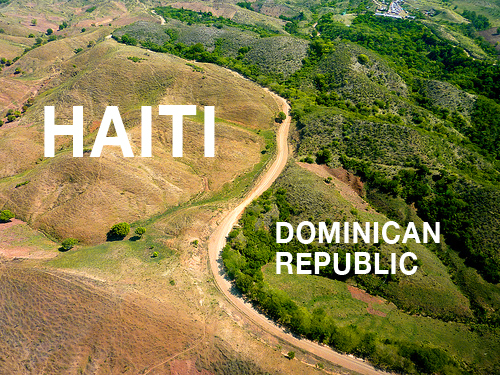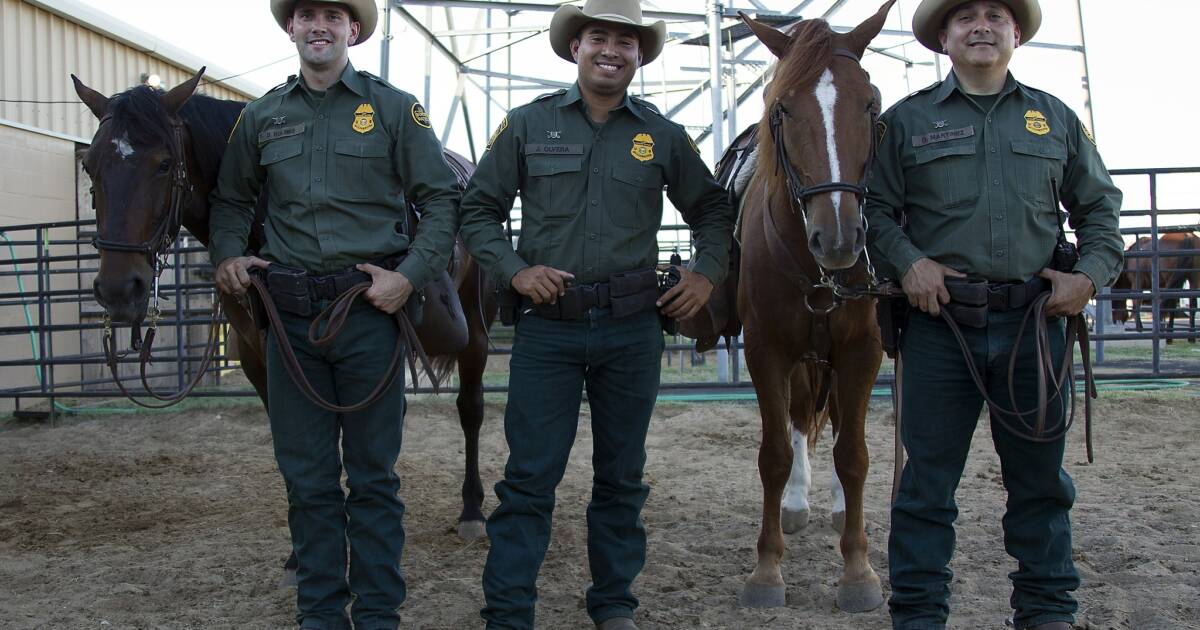Let’s stipulate this, as the lawyers say. Let’s say the mounted Border Patrol agents rounding up Haitians in Del Rio, Texas swung their reins and it looked like a whip. Let’s also stipulate that a lot of Haitians want to leave Haiti for the U.S.
Does this mean that the Border Patrol is driven by some deep-seated anti-Black racism, a systemic racism that goes back to antebellum times of the slave trade?
Almost like clockwork. I could see the editors pounding out emails assigning the “racism” angle yesterday after the U.S. special envoy to Haiti resigned because of HorseGate, or WhipGate, or whatever they’re going to call this. Daniel Foote resigned in a letter to Secretary of State Anthony Blinken.
“I will not be associated with the United States inhumane, counterproductive decision to deport thousands of Haitian refugees and illegal immigrants to Haiti, a country where American officials are confined to secure compounds because of the danger posed by armed gangs to daily life,” he wrote. “Our policy approach to Haiti remains deeply flawed, and my policy recommendations have been ignored and dismissed, when not edited to project a narrative different from my own.”
Also, the Biden administration has suspended the use of horse patrols at the border. That was a predictable step. Why add fuel to the fire? Why defend what is now clearly ensconced in the media as “whips”? There are so many other stories to move on to which don’t involve President Biden’s poor policies and failures (see David’s excellent overview of Republican election conspiracy follies).
It’s only natural that the story here, which, again, directly relates to the Biden administration’s failure to replace Trump-era border policies but also failure to enforce them, would turn to some sinister motive rather than inept governing. When the crisis finally grew to catastrophic proportions, suddenly the Trump policies got enforced all at once.
This led the New York Times to lob the worst possible insult at Biden.
“The question that’s being asked now is: How are you actually different than Trump?” said Marisa Franco, the executive director of Mijente, a Latino civil rights organization, who consulted the Biden campaign as a representative for Senator Bernie Sanders of Vermont. “You campaigned that immigration was one of the places where Trump was inhumane and failed. And last time I checked, Trump is not the president.”
I’d laugh at the karma if this wasn’t a real humanitarian disaster. Haiti is home to the most destitute, calamity-slammed people in the Western Hemisphere, whose corrupt government, waste of natural resources, and abject poverty has led its neighbor, the Dominican Republic, which shares the island of Hispaniola, to erect a border wall to keep Haitians out.

Note in the photo above how the Dominican side has trees and forest land, while Haiti has stripped all vegetation and trees from its side. This is the barren land, rife with crime and all manner of ills, Haitians want to escape. It’s no wonder that they go to great lengths to make it to the border crossing at Del Rio. If only they can—or have their kids make it—step on U.S. soil and live in America, that’s just about every Haitian’s dream.
To hear a Border Patrol agent, many of whom are Hispanic, say to a family “you use your women like this? That’s why your country’s s**t” when all the family wants to do is stay in America, I don’t wonder why Daniel Foote quit.
Sarah Jones wrote in the New Yorker, “Biden Is Becoming the Heir to Trump’s Border Racism.” The folks who think everything is racism are making the walls close in for Biden.
No one should ever underestimate the racism animating much of American society; Trump won, in part, because he was the sort of person who would call Haiti a “s***hole country.” But it’s moral cowardice to allow racism to dictate policy. The images taken at the southern border distill immigration restrictionism to its purest essence. The Biden White House is the hand that wields the whip. Better to take that whip and burn it.
But let me now deal with the core question. Is the policy toward Haiti racist, as claimed in the AP article “Haitians see history of racist policies in migrant treatment”?
Nicole Phillips, legal director for the Haitian Bridge Alliance, said racism has long driven the American government’s treatment of Haitian immigrants.
Phillips, whose organization is on the ground helping Haitians in Texas, says this dates back to the early 1800s, when Haitian slaves revolted and gained independence from France, and has continued through decades of U.S. intervention and occupation in the small island nation.
She said the U.S., threatened by the possibility of its own slaves revolting, both assisted the French and didn’t recognize Haitian independence for nearly six decades. The U.S. also loaned money to Haiti so that it could, in essence, buy its independence, collecting interest payments while plunging the country into poverty for decades.
“This mentality and stigma against Haitians stems all the way back to that period,” Phillips said.
This smacks of the same arguments that claim city police departments descended from slave patrols. The reasons why Haitians are deported at a higher rate than other Caribbean nations, and a smaller percentage of asylum applications are approved than, say, Guatemala, or the Dominican Republic, could have other roots and motives than preserving the legacy of the slave trade.
Current policy toward Haiti is unlikely to be driven by 100-year-old expeditionary policies (the U.S. occupied Haiti from 1915 to 1934, led by the racist president Woodrow Wilson). Let’s stipulate that back then, it was racism.
Today, it’s more a realization that Haiti is in a very poor condition. Haiti’s population is less than a million more than its neighbor, the Dominican Republic. Haitians filed 4,402 application for asylum in the U.S., while Dominicans filed just 666, based on data the AP cited. This means 0.006% of Dominicans file for asylum compared to nearly 0.004% of Haitians.
The fact that only 194 requests were granted to Haitians while a larger percentage, but a lower number (34) were granted to Dominicans becomes moot in the light of context. Most Haitians don’t do the paperwork to apply for asylum, and neither do Dominicans. With such small numbers, crying “racism!” is rather thin.
Again, with removals, according to AP numbers, 724 Haitians were removed, of which 430, or 59%, were “criminal removals.” That the Border Patrol is somehow seeking out Haitians to remove as a racist policy, with such small numbers among a much larger group of migrants, doesn’t seem as much to be a racist policy as it seems to be implementation of an existing policy of quotas that had been allowed to fester into a problem.
The “racism!” cries, from the same cast of characters you always see when these charges are made (Al Sharpton, BLM leaders, etc.), seem to be following the same pattern we’ve seen in the past.
I think American policy toward Haitians should be re-examined, along with our entire immigration, border security, and humanitarian asylum systems. On their surface, they may appear unjust or unfair, but as policy, they are a disjointed mess.
President Biden is not guilty of racism in this case, but neither is the Border Patrol. They are doing what they were ordered to do. However, Biden is guilty of being the do-nothing president, as he’s generally been since taking office. It’s easy to blame everything on Trump when you haven’t changed much. I think that’s the main reason, plus the fact that the very old Biden just lacks the energy to do a whole lot of changes.
In this case, I think Biden will be forced to make some actual changes beyond banning the use of horses (which is stupid, long term). Let’s hope that, in this completely divided political time, we get better policies, not reactionary ones driven by images of “whips” and a racist past.
Follow Steve on Twitter @stevengberman.
The First TV contributor network is a place for vibrant thought and ideas. Opinions expressed here do not necessarily reflect those of The First or The First TV. We want to foster dialogue, create conversation, and debate ideas. See something you like or don’t like? Reach out to the author or to us at ideas@thefirsttv.com.

